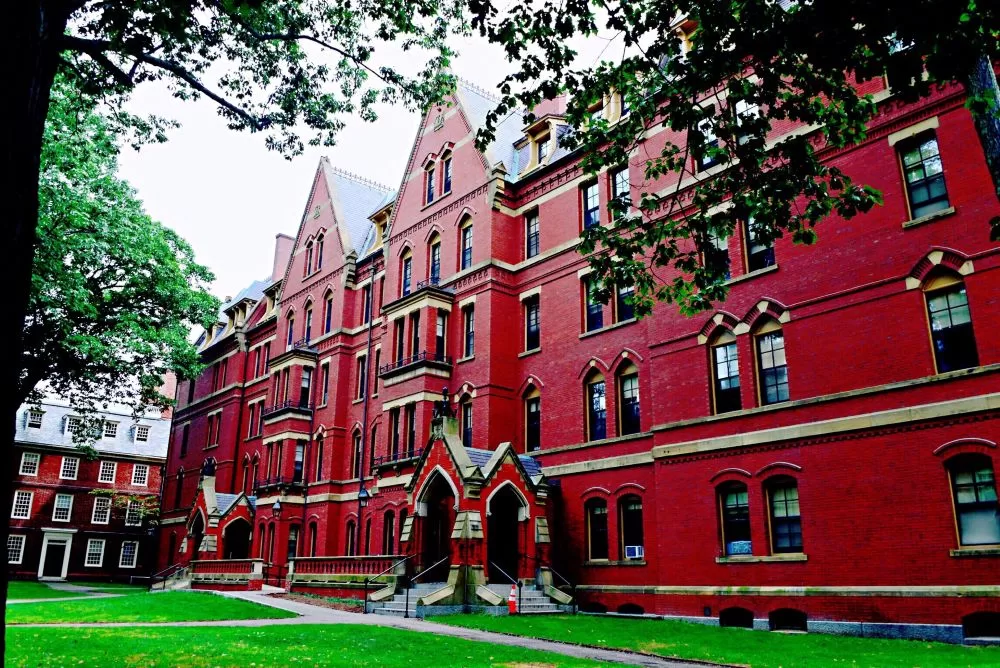
NEW YORK, May 23 (WSH) — Harvard University has filed a federal lawsuit against the Trump administration over its sudden move to revoke the university’s ability to enroll international students, calling it an “unprecedented and retaliatory” act that violates the U.S. Constitution and federal law.
The lawsuit, submitted Friday to the U.S. District Court in Boston, follows the Department of Homeland Security’s (DHS) decision to strip Harvard of its Student and Exchange Visitor Program (SEVP) certification. The revocation effectively blocks Harvard from admitting any new F or J visa holders for the 2025–2026 academic year and forces more than 6,800 current international students to transfer or risk losing their legal residency status in the United States.
In a 72-page complaint, Harvard asserts that the administration’s decision is a form of political retaliation for the university’s refusal to submit to demands including changes to its governance structure, admissions policies, and diversity and inclusion (DEI) initiatives. Harvard President Alan Garber called the move “unlawful and baseless,” warning that it jeopardizes thousands of students and the integrity of U.S. higher education.
“With the stroke of a pen, the government has attempted to erase one-fourth of Harvard’s student body,” the lawsuit reads. “This is the latest and most blatant retaliatory action against Harvard for exercising its First Amendment rights and resisting government control over academic governance and ideological compliance.”
The Department of Homeland Security justified its actions by accusing Harvard of fostering a hostile campus environment, citing alleged tolerance of antisemitism, support for extremist protests, and collaboration with Chinese institutions—claims Harvard categorically denies.

Chinese student Ding Wen, currently enrolled at Harvard, told Observer News that the timing of the ban—just weeks before commencement—is especially cruel to international students who have already accepted offers or begun coursework. “Many students are shocked and angry. Some were preparing for graduation. Others now face transferring to unfamiliar schools within 72 hours.”
While DHS framed the revocation as a response to “campus threats and foreign influence,” Harvard argued in court filings that the administration’s demands lacked any legal process or justification. The complaint says the policy violates the First Amendment’s protection of academic freedom and targets constitutionally protected speech.
In an internal message to faculty and staff, Harvard’s administration reassured the community it was seeking immediate legal remedies. “Without international students, Harvard would not be Harvard,” the statement read. The university warned the ban would disrupt countless academic programs, research labs, and graduation activities.
Several professors have also spoken out. A faculty member in the geosciences department shared how a postdoctoral position was abruptly canceled due to the freeze in federal funding—a move seen as part of the administration’s broader campaign to undermine elite institutions. “We had already invited the candidate to dinner,” the professor recalled. “But we had to tell them we couldn’t proceed with the hire because the grant was pulled.”
This lawsuit marks Harvard’s second major legal challenge against the Trump administration. In April, the university filed a case over the freeze of $2.26 billion in federal research funding, which remains under review. Observers suggest the administration’s tactics may reflect a larger effort to pressure elite academic institutions into political submission.
Despite the legal battle, many students and faculty remain cautiously optimistic. “This is classic Trump: extreme pressure to extract concessions,” said Ding Wen. “But like in past cases, Harvard is ready to fight—and likely to win.”
A federal judge has temporarily paused the SEVP revocation pending further hearings, offering a brief reprieve to affected students. Legal experts expect the case could reach the Supreme Court if a resolution is not found in lower courts.




